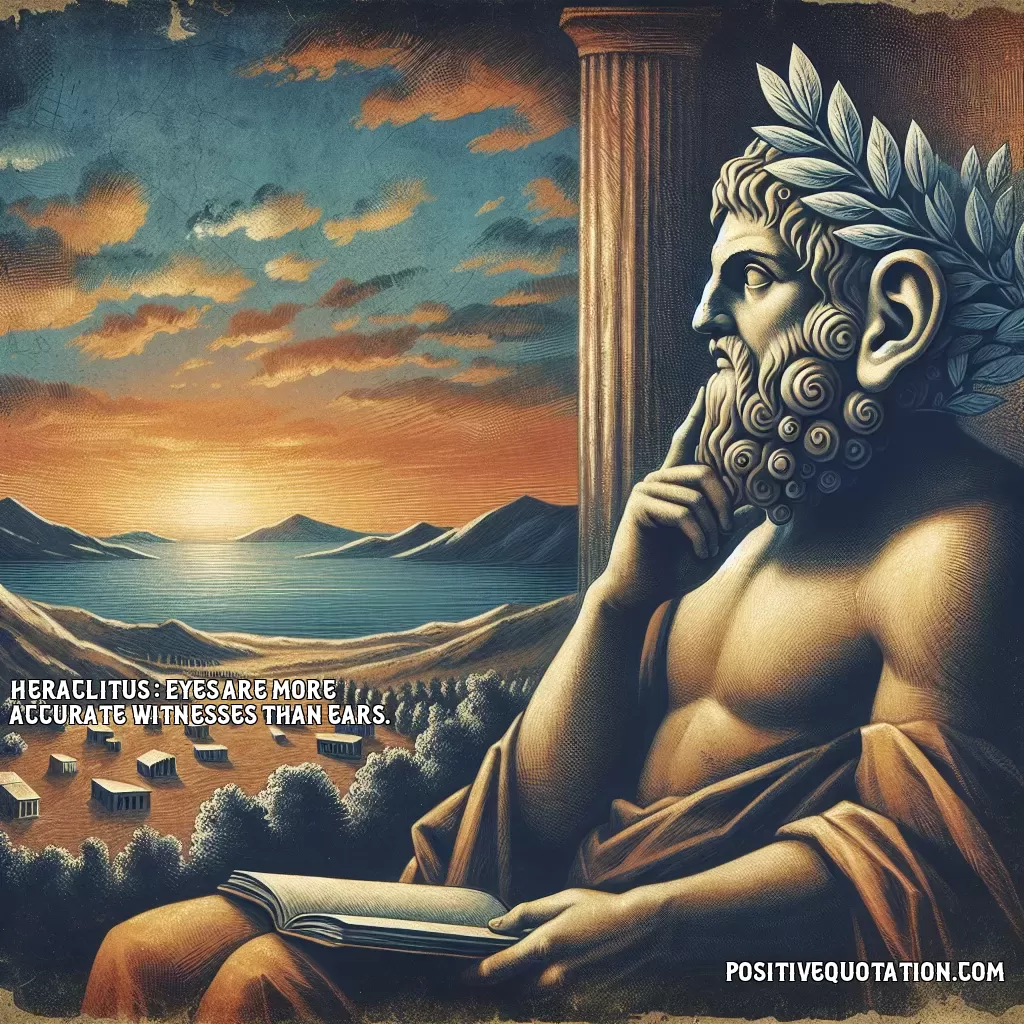
Heraclitus : Eyes are more accurate witnesses than ears.
Author: Heraclitus
👁️ 15 views
Heraclitus, a pre-Socratic Greek philosopher known for his doctrine that change is central to the universe, famously asserted that "Eyes are more accurate witnesses than ears." This quote can be explored from multiple perspectives, each shedding light on the nature of perception and knowledge. Firstly, on a literal level, Heraclitus is emphasizing the reliability of visual perception over auditory perception. The eyes provide direct, immediate evidence of the world around us, capturing details, colors, and forms that are often more precise than what we hear. Auditory input can be distorted by distance, echoes, and surrounding noise, making it potentially less reliable. In contrast, visual observation allows us to verify and confirm realities in the external world more accurately. On a metaphorical level, the quote underscores the importance of personal observation and experience in acquiring true knowledge. Hearing involves receiving information second-hand or through another person's interpretation, which can be susceptible to bias, miscommunication, or deliberate manipulation. In contrast, seeing is associated with firsthand experience, providing more certainty and less ambiguity. Heraclitus suggests that to truly understand the world, we must rely on direct, observable evidence rather than stories or hearsay. Additionally, the quote reflects Heraclitus’s broader philosophical belief in the ever-changing nature of reality. He emphasizes direct observation as a way to navigate and comprehend the world’s constant flux, affirming that clear, unbiased observation leads to a deeper understanding of the truth. In this sense, Heraclitus implicitly values the authenticity of personal experience over mere rumor or report, which aligns with his philosophy that one must embrace the dynamic and uncertain nature of existence.
Quote By: Heraclitus
Heraclitus of Ephesus (circa 535–475 BCE) was a pre-Socratic Greek philosopher known for his enigmatic sayings and profound insights into the nature of change and existence. Often referred to as the "Weeping Philosopher," he famously posited that "everything flows" (panta rhei), emphasizing the constant state of flux in the universe, and he introduced the concept of the unity of opposites. His thoughts on fire as a fundamental element and the logos as a guiding principle laid important groundwork for later philosophical and scientific developments.
Bio added on: 2025-02-15 14:14:43